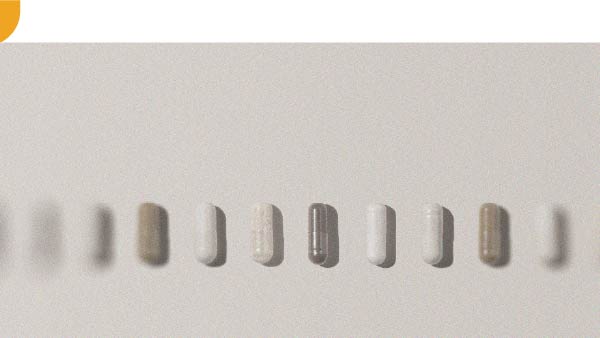At what time of day should I take my multivitamins?
You’re taking a supplement such as Daily 3 and want to know the perfect time to take it for maximum absorption of all its nutrients? Supersmart has the answer.

To get the maximum benefit from multivitamin supplements, it’s best to take them with food, particularly the highest-fat meals of the day. If your breakfast contains sufficient fat (butter, cheese, ham, eggs …), it will enable your body to correctly absorb fat-soluble vitamins, those that only release their compounds in fats – vitamins A, D, E and K.
Taking your supplements with a meal also reduces the risk of stomach ache or nausea which can occur when supplementing with iron or zinc, in particular.
What if I’m also taking other supplements?
You should take them at a different time: if, for example, you’re taking a significant amount of calcium, it can interfere with the absorption of the magnesium, iron, copper and zinc in your multivitamin supplement. Similarly, if you’re taking vitamins A, D, E and K, this can reduce the efficacy of these same vitamins when they form part of multiple supplements.
Finally, if you’re supplementing with vitamin B12, take it at least six hours apart from any other supplement: it’s better to take a smaller dose twice a day than one large dose.
Which multivitamin supplement should I choose?
As a general rule, it’s best to choose a multivitamin complex which provides the recommended daily amount for each of its compounds: taking more is at best pointless and at worst dangerous in the case of certain substances. One of the best-known is Daily 3: it’s unquestionably the most comprehensive, one-capsule-a-day, multivitamin available, offering doses and forms that are optimal for the body. It contains no less than 42 exceptional ingredients!
It’s always a good idea to discuss supplementation with your pharmacist: he or she can advise you on the right dose for your needs, and on any potential interactions with medication you might be taking.
4 Days
The delivery was fast and the product…
The delivery was fast and the product is great
SOMMARIVA Gianni
6 Days
Great service and lots of information
Great service and lots of information
Gabi
9 Days
Service Satisfaction
I’m satisfied with the service; it fulfilled what it set out to do.
Anfhony Abreu
11 Days
Original product and fast delivery
Original product and fast delivery. I haven't started it yet, but will do soon.
Vincenza Catania
14 Days
Good quality
Good quality. Good service.
Leonel Guzman
16 Days
Top!!!!!!!!
Top!!!!!!!!
Michael
18 Days
Excellent!
Products are great and delivered fast!
PARDINI Debora
19 Days
From order to receive the product
From order to receive the product, the process is smooth & fast. It’s good to customers.
WONG Mei Ling
20 Days
Fast delivery
very quick delivery to italy. product is good.
Customer
21 Days
Prompt delivry !!👍
Prompt delivry !!👍
SWEET Christine
21 Days
Good delivery and flawless quality
AS far as delivery and the visual quality are concerned, Supersmart is excellent. I will not comment on the efficacy of the products themselves, since that is only possible over a longer period and in a large customer base compared to people who do not consume a particular product.
Roger De Backer
23 Days
Perfect services
Perfect services, perfect support, great articles about products
Michaela Alali Beitlová
23 Days
Great experience and effective supplements
I’ve purchased many types of supplements from this company over the course of years to treat a few issues, and I’m satisfied with their quality. After using them consistently for a period of time, I can say they met my expectations and I could feel real health benefits that built up over time. Deliveries are always quick. I recommend this company to anyone looking for high-quality supplements.
Giordano
23 Days
Es hat alles gestimmt
Es hat alles gestimmt. Top
marina thieme
26 Days
Great product
Great product, but still evaluating its effectiveness. Highly recommended. Super efficient delivery.
Chalise
of experience
your money back
##montant## purchase



